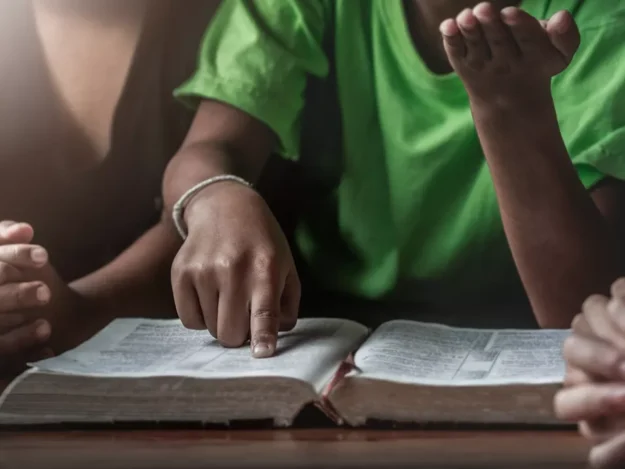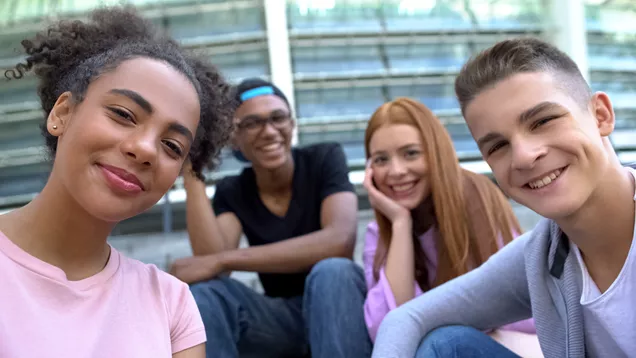
Religion, Culture and Anti-Discrimination
At Headway, we ensure equal access to all services and opportunities, regardless of race, gender, disability, culture, age and sexuality.
Fostering the Right Culture
We are dedicated to ensuring that each young person in our care feels supported in pursuing their individual cultural and religious needs. Having the opportunity to express and enrich one’s own self and identity can greatly impact upon the way in which young people grow and develop.
In order to help our young people to grow into healthy adults who are confident and proud of whom they are, we foster a culture where children of every race and ethnicity are understood, valued and respected equally.
For all young people in our care, it is important to help them feel like they belong. We are committed to becoming aware of cultural needs that are relevant to the individual child including language, specific dietary requirements, acknowledgment of religious celebrations and holidays, and the purchase and replenishment of paraphernalia required to practice individual faiths.
We also have a responsibility to understand and provide the opportunity for the social and emotional needs of young people, including self-awareness, respect, and identity, whereby they are encouraged and supported to take part in community activities and cultural events.

Young people in our care are encouraged to gain knowledge and appreciation of different cultures and identities through education, sports, drama, music, literature, visual and culinary arts. They are supported in sharing and exploring values with one another. The group living experience in our homes offers a great opportunity to share and understand the beliefs and culture of those from different backgrounds and we encourage individuals to celebrate and be proud of their differences.
Maintaining Open Discussion
Young people in our homes often have feelings of being on the outside of a group, for various reasons, but particularly because they are living away from their families and outside the mainstream of society. In addition to this, many children originally come from families who have found it difficult to fit in and have lived on the margins of society; these experiences of being ‘outside’ have often been compounded for the child by multiple placement moves and experiences of rejection. Some of these experiences will have racial, ethnic, religious and cultural components.
We embrace diversity as positive and enriching, and we encourage staff and children to share their thoughts and feelings and to communicate their understanding about the world around them through regular open discussion.
Inevitably feelings of difference, of being part of a minority, of being misunderstood, can form a significant part of these discussions. Where this occurs, children are helped to reflect upon and process instances where they have been made to feel different and may have been subject to others’ prejudice.
We are committed to supporting young people to understand and manage their feelings and responses to incidents of racism or prejudice, and will seek external resources where appropriate to assist with this. Significant discussions will be recorded as appropriate so that Care Plans can be suitably adjusted and parents and social workers can be included.
Anti-Discrimination
No form of racism or prejudice towards adults or children within or outside of our homes is acceptable. Any expression of racism or prejudice will not be tolerated and if found, will be managed under the Disciplinary Procedure.
Headway has based the full policy on Children’s Rights from extracts taken from the ‘UN Convention of the Rights of the Child’.
The Convention on the Rights of the Child lists internationally acknowledged rights of children, which means that a child is an individual who has human rights.
Children of different age and gender have various interests and needs, but despite their differences, all individuals have equal rights and a right to equal treatment.
In addition to rights, children also have responsibilities, like adult members of society.
A child’s rights end where the rights of another child or an adult begin. This means that rights have limits and a child must consider the rights of other children and adults when exercising their own rights.
Rights and responsibilities go hand in hand, and at Headway we will endeavour to teach and support young people in our care to be respectful of this.

Young People’s Views
We are committed to giving all young people the opportunity to be listened to and express their wishes, feelings and needs, and use an open person centred approach in all of our homes. We achieve this by promoting an ethos of open communication, holding regular house and one to one meetings.

Education and Therapy
We work with and advocate for access to education, ensuring the needs of the individual child are identified and met through well thought out and detailed placement plans. We are proactive in recognising any achievements made by the young people and celebrate these with them.

Behavioural Support
At Headway, we believe that young people should be assisted to develop socially acceptable behaviour through encouragement of positive behaviour and constructive responses to inappropriate behaviour.